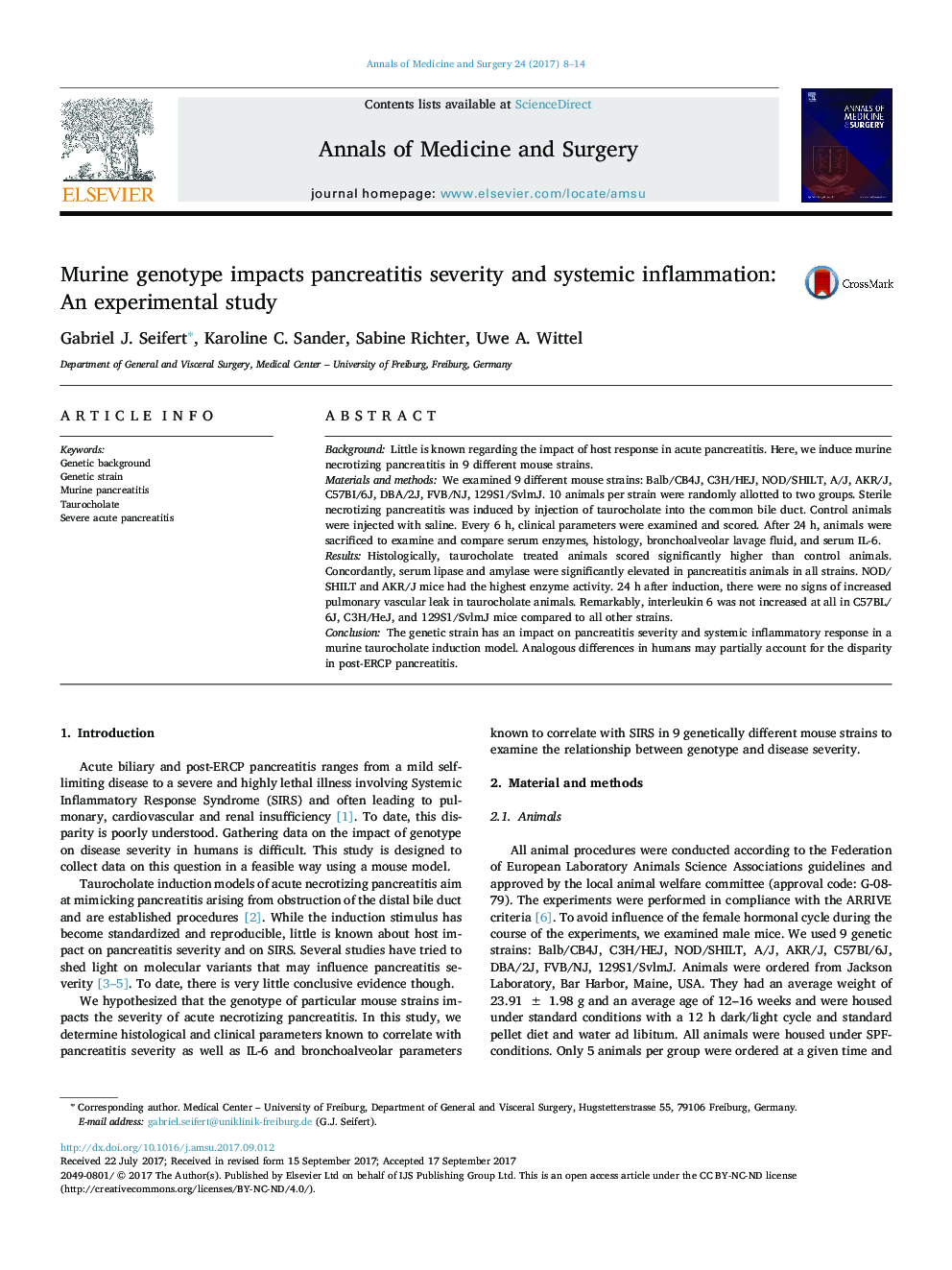| Article ID | Journal | Published Year | Pages | File Type |
|---|---|---|---|---|
| 5722832 | Annals of Medicine and Surgery | 2017 | 7 Pages |
â¢Murine genotype influences severity of necrotizing pancreatitis.â¢SIRS in severe pancreatitis is significantly decreased in some mouse strains.â¢Further studies examining the mechanisms of host response to pancreatitis triggers are warranted.
BackgroundLittle is known regarding the impact of host response in acute pancreatitis. Here, we induce murine necrotizing pancreatitis in 9 different mouse strains.Materials and methodsWe examined 9 different mouse strains: Balb/CB4J, C3H/HEJ, NOD/SHILT, A/J, AKR/J, C57BI/6J, DBA/2J, FVB/NJ, 129S1/SvlmJ. 10 animals per strain were randomly allotted to two groups. Sterile necrotizing pancreatitis was induced by injection of taurocholate into the common bile duct. Control animals were injected with saline. Every 6Â h, clinical parameters were examined and scored. After 24Â h, animals were sacrificed to examine and compare serum enzymes, histology, bronchoalveolar lavage fluid, and serum IL-6.ResultsHistologically, taurocholate treated animals scored significantly higher than control animals. Concordantly, serum lipase and amylase were significantly elevated in pancreatitis animals in all strains. NOD/SHILT and AKR/J mice had the highest enzyme activity. 24Â h after induction, there were no signs of increased pulmonary vascular leak in taurocholate animals. Remarkably, interleukin 6 was not increased at all in C57BL/6J, C3H/HeJ, and 129S1/SvlmJ mice compared to all other strains.ConclusionThe genetic strain has an impact on pancreatitis severity and systemic inflammatory response in a murine taurocholate induction model. Analogous differences in humans may partially account for the disparity in post-ERCP pancreatitis.
